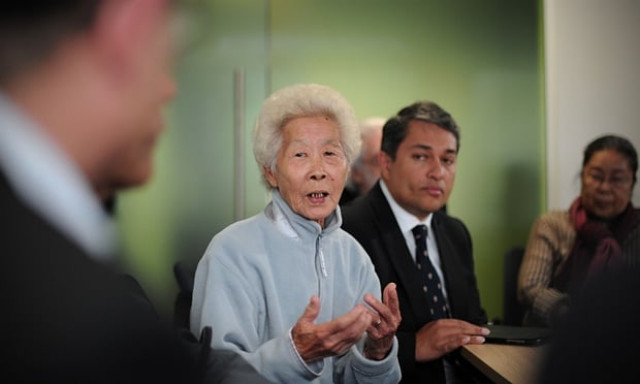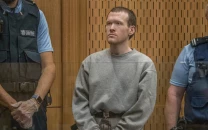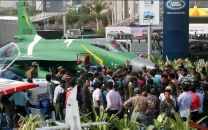Britain's highest court rejects Malaysia massacre appeal
Relatives of workers have waged a decades-long fight for a probe into the "Batang Kali massacre"

Lim Ah Yin, whose father was killed at Batang Kali in 1948, gives her testimony to the hearing into the deaths of 24 unarmed villagers in what was Malaya. PHOTO: AFP
Relatives of the workers have waged a decades-long fight for a probe into the so-called "Batang Kali massacre", which occurred on December 12, 1948, during the Malayan Emergency, when Commonwealth forces fought a communist-inspired revolt in the British colony.
Two judges originally ruled in 2012 that the government's refusals in 2010 and 2011 to hold an inquiry were "not unreasonable", a view upheld by the Court of Appeal last year.
At least 22 dead as gunmen seize more than 100 at Mali hotel
In a final bid, the relatives -- Chong Nyok Keyu, Loh Ah Choi, Lim Kok and Wooi Kum Thai -- called on the Supreme Court to review the decision, but the five sitting judges, headed by Supreme Court president David Neuberger, on Wednesday dismissed the challenge.
Lawyer Michael Fordham, representing the families, had earlier told the court that his clients hoped to "vindicate the legitimate interests of the deceased, in order to achieve justice, before they die themselves".
The legal team referred to Article 2 of the European Convention on Human Rights, the right to life, which it argued imposed a duty on Britain to hold an independent inquiry.
However, the government argued that the Human Rights Act "does not have retrospective effect and does not impose an obligation to hold an inquiry into deaths occurring several decades before it came into force".
Bosnia: from outbreak of war to Dayton peace accords
If successful, the challenge could have opened the door to demands for Britain's to investigate historical cases involving its troops, including during the Northern Irish conflict known as The Troubles.
The case also examined whether Britain had any legal responsibility for the soldiers' actions, and if so whether that ceased upon Malaysian independence in 1957.
The ethnic Chinese labourers were killed after British soldiers entered the Batang Kali rubber plantation about 30 kilometres (20 miles) north of Kuala Lumpur, rounding up and interrogating villagers.
Britain's Gatwick Airport evacuates one terminal as precautionary measure
The communist rebels in what was then called Malaya were predominantly ethnic Chinese, who had begun arriving in Malaya in the early 20th century to work as labourers.
The British government at the time said that the villagers were suspected insurgents and were shot when they tried to escape, but lawyers for the families argue the men may have been deliberately executed.
The killings have been referred to as "Britain's My Lai" after the infamous Vietnam War massacre by US troops, and Britain's Ministry of Defence has called it a "deeply regrettable incident".
The massacre was largely forgotten until 1970 when a British newspaper ran an explosive account of the killings, publishing sworn affidavits by soldiers admitting they had killed in cold blood.
The guerrilla war left thousands dead and only formally ended with the signing of a 1989 peace treaty with the Malayan Communist Party.



















COMMENTS
Comments are moderated and generally will be posted if they are on-topic and not abusive.
For more information, please see our Comments FAQ